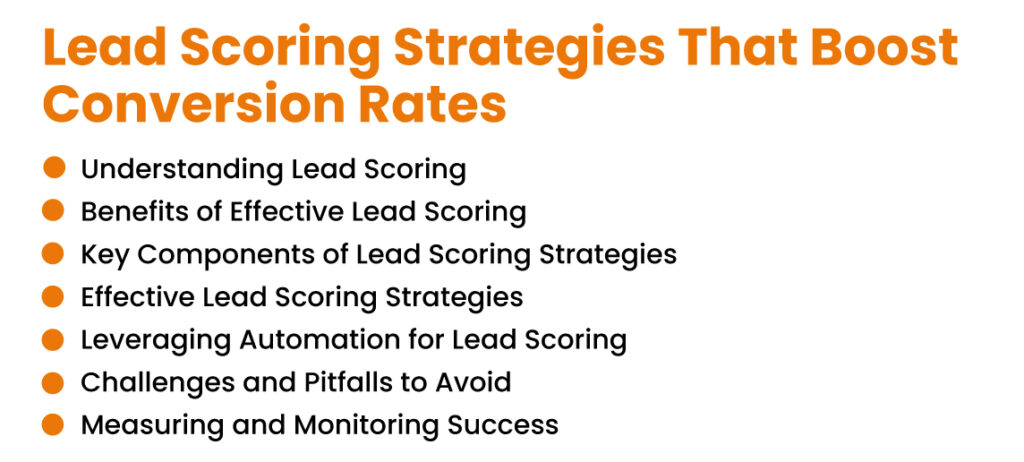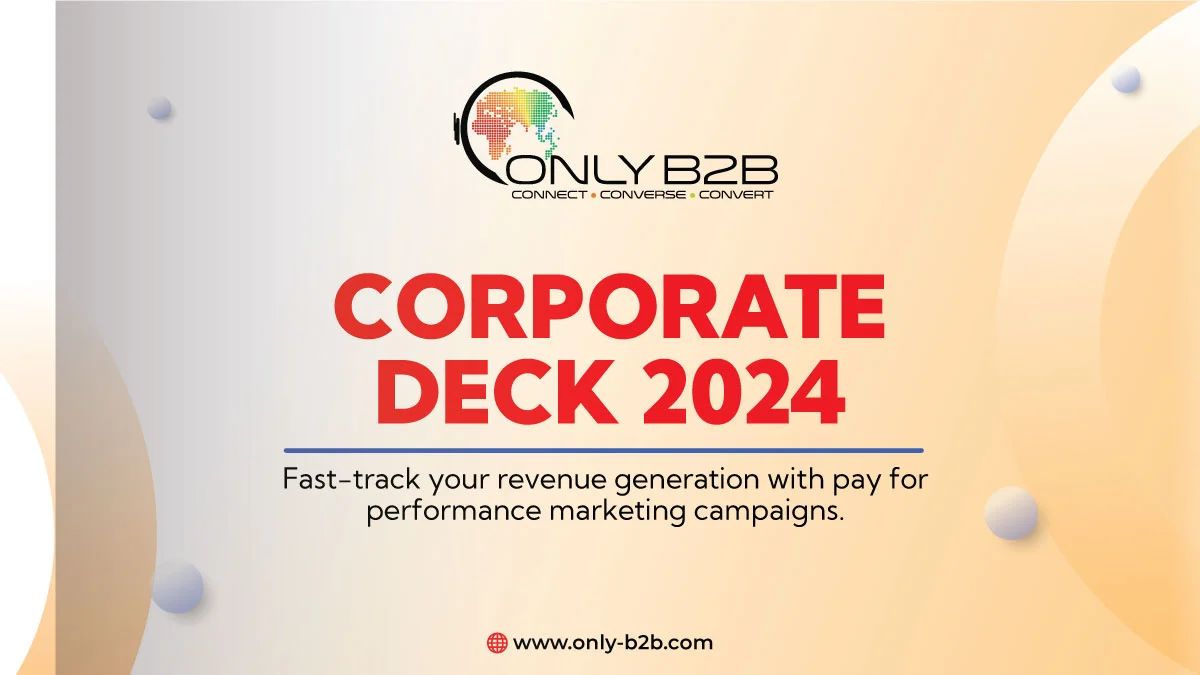
In today’s fiercely competitive business landscape, converting leads into loyal customers is the goal. Lead scoring, a critical component of any successful sales and marketing strategy, can be the bridge that guides your leads towards conversion.
In this comprehensive guide, we will unravel the lead scoring strategies, explore its key components, and delve into effective strategies that can skyrocket your conversion rates.
So, let’s embark on this journey of understanding and optimizing lead scoring to drive your business towards success.
Must Read: How to Rock Your Lead Scoring System Using These 3 Best Practices
Lead Scoring Strategies That Boost Conversion Rates: The Road to Sales Success
Table of Contents

In the realm of sales and marketing, identifying the most promising leads from a pool of prospects is akin to finding a needle in a haystack.
This is where lead scoring enters the picture. It’s a methodology that assigns a numerical value or score to each lead based on their interactions with your brand and their characteristics.
Effective lead scoring is not just a nice-to-have but a necessity in today’s data-driven world. Let’s explore how it can revolutionize your conversion rates.
Must Read: Revolutionizing Lead Generation with Automated Lead Qualification: A Data-Driven Guide
Understanding Lead Scoring
Lead scoring is grounded in data and analytics. It’s a systematic approach that quantifies the quality of leads, allowing sales and marketing teams to prioritize their efforts. But why is it so important?
Must Read: How to Qualify Inbound Leads?
Benefits of Effective Lead Scoring
Data from Marketo suggests that businesses that excel at lead scoring generate 50% more sales-ready leads at a 33% lower cost. That’s a compelling reason to embrace effective lead scoring strategies.
Sales Funnel Efficiency:
Effective lead scoring streamlines the sales funnel by focusing resources on leads with a higher likelihood of converting. This efficiency can significantly impact on your bottom line.
Marketing Automation Benefits:
According to Forrester Research, companies using marketing automation can experience a 10% increase in revenue in as little as 6-9 months. Lead scoring is a vital component of successful marketing automation.
CRM Integration for Lead Scoring:
Integrating lead scoring with your Customer Relationship Management (CRM) system ensures seamless data flow and aids in better lead tracking and management.
Lead Nurturing Best Practices:
Lead scoring helps tailor lead nurturing efforts to individual leads’ needs, improving engagement and trust-building.
Must Read: Automating B2B List Building: Tools and Techniques for Streamlined Lead Generation
Key Components of Lead Scoring Strategies
Before diving into strategies, it’s essential to understand the key components that make up lead scoring:
1. Predictive Lead Scoring
Predictive lead scoring employs advanced analytics and machine learning algorithms to predict which leads are most likely to convert. It’s highly effective because it considers a broad range of data points, including historical data and online behavior.
2. Behavioral Scoring Techniques
Behavioral scoring tracks how leads interact with your brand. This includes website visits, email openings, click-through rates, and other online behaviors. Each interaction is assigned a score, contributing to the lead’s overall score.
3. CRM Integration for Lead Scoring
Integrating lead scoring with your CRM system ensures that lead data is synchronized across your organization. This facilitates better communication and decision-making, enabling teams to act on the most up-to-date information.
Must Read: Sales Success Secrets: The Critical Role of Lead Generation and Appointment Setting
Effective Lead Scoring Strategies
Now that we’ve laid the groundwork let’s explore some effective lead scoring strategies that can drive conversion rates through the roof:
Lead Segmentation:
Divide your leads into distinct segments based on demographics, behavior, and engagement. This allows for tailored communication and more personalized nurturing.
Scoring Thresholds:
Define clear scoring thresholds that determine when a lead is “sales ready.” This ensures that your sales team focuses on the most qualified leads (Sales Qualified or Marketing Qualified).
Feedback Loops:
Regularly review and refine your lead scoring criteria based on feedback from your sales team. This keeps the scoring system aligned with the evolving needs of your organization.
Must Read: Data Cleansing Automation: Enhancing Efficiency and Reducing Manual Efforts
Leveraging Automation for Lead Scoring
Automation is the backbone of modern lead scoring strategies. It ensures consistent and objective scoring while saving time and resources.
With marketing automation tools like HubSpot, businesses can automate lead scoring based on predefined criteria, ensuring that no lead falls through the cracks.
Must Read: What are the Best Ways to Generate Leads?
Challenges and Pitfalls to Avoid
While lead scoring can significantly boost your conversion rates, there are challenges to be mindful of:
Data Quality:
Inaccurate or incomplete data can lead to flawed scoring. Regularly audit and clean your data to maintain accuracy.
Over-Scoring:
Be cautious not to assign too high a score too early. Over-scoring can result in wasting resources on leads that aren’t truly sales ready.
Static Scoring:
Your lead scoring system should evolve with your business. Don’t set it and forget it. Regularly review and adjust your scoring criteria.
Must Read: Implement Automation Tools To Soar Your ABM Efforts
Measuring and Monitoring Success
To ensure your lead scoring strategies are working effectively, you need to measure and monitor their success. Utilize analytics tools to track conversion rates, lead quality, and the impact on your sales funnel efficiency. Continuous monitoring allows you to make data-driven adjustments in real time.
Conclusion
Effective lead scoring strategies are the backbone of modern sales and marketing efforts. By understanding the key components, embracing automation, and implementing proven strategies, you can drive your conversion rates to new heights.
Remember that lead scoring is not a static process; it should evolve with your business and customer behavior. By doing so, you’ll be well on your way to converting more leads into loyal customers and achieving sustainable business growth.
Must Read: How to Improve Lead Quality?

Vikas Bhatt is the Co-Founder of ONLY B2B, a premium B2B lead generation company that specializes in helping businesses achieve their growth objectives through targeted marketing & sales campaigns. With 10+ years of experience in the industry, Vikas has a deep understanding of the challenges faced by businesses today and has developed a unique approach to lead generation that has helped clients across a range of industries around the globe. As a thought leader in the B2B marketing community, ONLY B2B specializes in demand generation, content syndication, database services and more.


